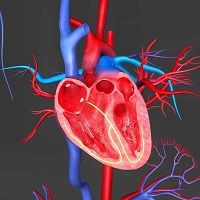Can Telomere Length Predict Stroke Risk?
Independent of cardiac risk factors, including chronological age and blood pressure preserved telomere length "represents healthy cellular aging," Dhananjay Vaidya and colleagues at Johns Hopkins University reported in an abstract.

Longer leucocyte telomere length (LTL) is associated with more distensible carotid arteries, a Baltimore, MD team reported at the American Heart Association Annual Scientific Sessions in Orlando, FL.
Independent of cardiac risk factors, including chronological age and blood pressure preserved telomere length "represents healthy cellular aging," Dhananjay Vaidya and colleagues at Johns Hopkins University reported in an abstract.
The longer telomeres could mean that patients who have them are better able to recover from a stroke.
The team analyzed data from 119 healthy adults ages 21 to 80. All had a familial history of early onset coronary artery disease. Their results, as reported in the abstract, showed that "the mean (SD) of LTL4 was 94851 (16370) and of LTL7 was 80666 (15001) repeats. Adjusting for age at LTL measurement, follow-up time to carotid measurement, sex, race, systolic and diastolic blood pressure, LDL- and HDL-cholesterol levels, current smoking and diabetes, 1 SD higher level of LTL4 was associated with 2.0 Ñ… 10-4(p = 0.027), and 1 SD higher level of LTL7 with 1.8 Ñ… 10-4 mmHg-1 (p = 0.048) higher CD, which is equivalent to CD at a chronological age that is lower by 4.4 and 4.0 years, respectively. Hypertension is not significantly associated with CD (p = 0.49) when added to this model."
The team concluded that preserved telomere length may lead to preserved arterial distensibility.
"This mechanism may partly explain the reported association of greater telomere length with lower risk of vascular events including coronary disease, heart failure and stroke," they noted.